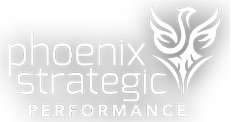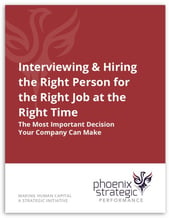Is there really a difference in the types of change confronting us now?
Change is all around us. The word 'Change' has been so overused that we can no longer determine its precise meaning. For example, a moderate change in process is far different from a change of epic proportions. The same word, ‘change,’ has significantly different meanings, outcomes, and consequences.
- ‘Change by Degree’ (gradual, evolving): Under the ‘continuous change’ concept, we reference the word ‘evolving.’ Now, let’s take that concept and add in ‘change by degree.’ Change by degree is part of the ‘continuous change’ process, where change is still recognizable from its earlier form. However, there is a tipping point when ‘change by degree’ is no longer a valid representation of the current state. And, if we are comfortable with the concept of ‘continuous change,’ we may very easily miss the point when ‘change by degree’ has morphed into something new.
- ‘Change in Kind’ (significant departure, a new reality): That something new represents a significant departure from the earlier form, to the point where that earlier form is no longer recognizable. At that point, change has become a ‘change in kind’. We are now in a new reality. So what’s the issue if we miss recognizing the tipping point? We get so comfortable with ‘change by degree’ that we fail to realize the need to completely change how we do things to align with and fit into the new reality. The old rules and ways no longer apply. We mistakenly treat this new reality as if it’s just an extension of the old state. And there’s the problem.
Think about your experience when ‘change by degree’ has been replaced by ‘change in kind.’ It happens in both your work and personal lives. No one is immune from change since it’s happening all around us. It could change from commission-based sales to fee-based account management in the workplace. On a personal level, it could be the arrival of a baby or the death of a key central family figure.
We must always be mindful of the real scope of change and deal with it accordingly. It’s too easy to misread or deny change. The story of the frog in the pot is an example of this.
The frog, a cold-blooded animal, adapts to hot and cold elements in its environment. If you put the frog into a pot of cold water and begin to heat the water slowly and gradually, the frog will slowly adapt to the heating water – not recognizing that the water has changed from warm to boiling. The boiling water, the new reality, is now a hostile environment. By slow adaptation, the frog doesn’t realize the water has changed from a ‘change by degree’ (warm) to a ‘change in kind’ (boiling). In the end, slow adaptation will cause the frog to perish.
Only we can control our observations of and reactions to change and how we manage change. We must recognize the signposts telling us when we have moved from ‘change by degree’ to ‘change in kind.’
Be mindful - don’t go the way of the frog in the pot!
We invite you to schedule a needs assessment if you or your company are looking for innovative and proven ways to manage change at your organization.




